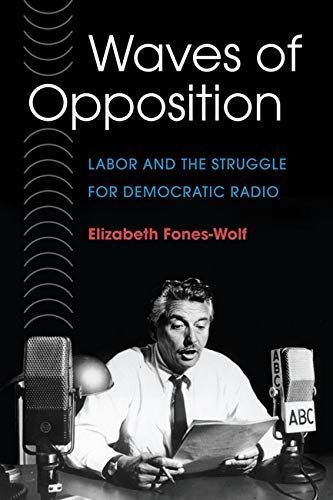
Waves of Opposition Labor and the Struggle for Democratic Radio
In Waves of Opposition, Elizabeth Fones-Wolf describes and analyzes the battles over the powerful new medium of radio, which helped spark the massive upsurge of organized labor during the Depression. She demonstrates its importance as a weapon in an ideological war between labor and business, where corporations used radio to sing the praises of individualism and consumerism, while unions emphasized equal rights, industrial democracy, and social justice. Organized chronologically, the work explores the advent of local labor radio stations such as WCFL and WEVD, labor's anti-censorship campaigns, and unionist experiments with early FM broadcasting. Through extensive use of business and union archives, as well as broadcasting industry records, Fones-Wolf demonstrates how radio became a key component of organized labor's efforts to contest businesses' domination of political discourse throughout the thirties, forties, and fifties. Waves of Opposition concludes by claiming that labor's virtual disappearance from American media today helps explain in part why unions have become so marginalized and offers important historical lessons to those seeking to revitalize organized labor.